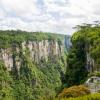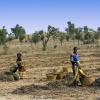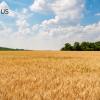
The following statistics are from the last 5 full calendar years: 2019-2023
Publications
Pagination
Pagination
Pagination
Projects
| Name | Start | End Sort ascending | Abbreviation | Classification |
|---|---|---|---|---|
| RLUC: Economic Growth and land-use change in regions | 2019 | 2021 | RLUC | Global |
| Analytical Capacity on International Climate Change Mitigation and Tracking Progress of Action | 2019 | 2021 | PBL_CLIMA 5 | Global |
| GEOEssential / ERA-PLANET | 2017 | 2021 | GEOEssential | Global |
| A Citizen Observatory and Innovation Marketplace for Land Use and Land Cover Monitoring | 2016 | 2021 | LandSense | Global |
| Roadmap: The World’s Roadmap to Net Zero by 2050 | 2021 | 2021 | WEO 18-20 Y3Ext | Global |
| IEA_S: IEA Service contract | 2021 | 2021 | IEA_S | Global |
| Citizen Science and Health related SDG-indicators | 2021 | 2021 | CS-SDG-Health | Global |
| EPA CCD FC 2020 2023: Analysis and Economic Modeling and Clean Air Act Issues | 2020 | 2021 | EPA CCD FC 2020 | Global |
| WeObserve: Coordinating citizen observatories across Europe | 2017 | 2021 | WeObserve | Global |
| ECMG: Earth Commission Modeling Working Group | 2020 | 2021 | ECMG | Global |
Pagination
| Name | Start | End Sort ascending | Abbreviation | Funder |
|---|---|---|---|---|
| Development of a Modelling Technique for Human Mobility in the Context of Climate Change and Capacity Development in the IGAD Region (Horn of Africa) | 2021 | 2022 | ClimMob | Deutsche Gesellschaft fuer International Zusammenarbeit (GIZ) GmbH |
| Klimaschutzwirkung von Naturschutz- und Wirtschaftswäldern | 2020 | 2022 | FOR4CLIM | DBFZ German Biomass Research Center |
| SPIPA India: Joint Modelling Initiative for Preparing Low Carbon Development Scenarios for India up to 2050 | 2020 | 2022 | SPIPA India | German Agency for International Cooperation (GIZ) GmbH |
| EUCLDB: Steady-State Critical Loads for eutropohication and acidification for European terrestrial ecosystems. | 2020 | 2021 | EUCLDB | Umwelt Bundesamt |
| Land-use planning and financial innovation to increase Mexico’s resilience to climate change | 2021 | 2021 | IKI_MX_prep | Federal Ministry for the Environment, Nature Conservation, Building and Nuclear Safety (BMUB) |
| Good Practice Guidance SDG 15.3.1 | 2020 | 2020 | RFP CCD 2020-12 | United Nations Convention to Combat Desertification (UNCCD) |
| Exploring pathways of demographic transition of selected developing countries while assessing their propensity of harnessing a demographic dividend | 2018 | 2019 | DemographicDivi | Deutsche Gesellschaft fuer International Zusammenarbeit (GIZ) GmbH |
| Sustainable Energy Development in the Middle East and North Africa | 2015 | 2019 | MENA-SELECT | Federal Ministry for Economic Cooperation and Development |
Pagination
Engagement
People
- Women
- Men
- Women
- Men
- Women
- Men
- Women
- Men
- Unknown
News

01 March 2024
Johan Rockström to receive the 2024 Tyler Prize for Environmental Achievement

26 June 2023
Are we building back better yet?

27 March 2023
Co-producing fair transformative pathways towards climate and biodiversity goals
Events
Humboldt University of Berlin
IIASA at Fragile Lives 2024: Evidence for human development, food security, and peace in poly-crises
Potsdam Institute for Climate Impact Research (PIK) & Online
German IIASA Networking Event: "Systems analysis for a sustainable and peaceful future"
Focus

04 September 2024
The role of urban green spaces as nature-based solutions in Korea and Germany
Imagine a city where every neighborhood has lush green spaces that not only beautify the area but also improve the quality of life for its residents. How can we work together to make this vision a reality? Jaewon Son, a participant in the 2024 IIASA Young Scientists Summer Program shares insights into this important question.
27 June 2024
Strengthening the case for nature‑based solutions

Projects
Publications
Rasche, L., Schneider, U., & Steinhauser, J. (2024). FABLE Scenathon 2023 Pathways for food and land- use systems in Germany. Sustainable Development Solutions Network (SDSN) , Paris. 10.5281/zenodo.11547130. Minetto Gellert Paris, J., Escobar Lanzuela, N. , Falkenberg, T., Gupta, S., Heinzel, C., Verly Junior, E., Jolliet, O., Borgemeister, C., & Nöthlings, U. (2024). Optimised diets for achieving One Health: A pilot study in the Rhine-Ruhr Metropolis in Germany. Environmental Impact Assessment Review 106 e107529. 10.1016/j.eiar.2024.107529. Birkmann, J., Schüttrumpf, H., Handmer, J., Thieken, A., Kuhlicke, C., Truedinger, A., Sauter, H., Klopries, E.-M., Greiving, S., Jamshed, A., Merz, B., Solecki, W., & Kirschbauer, L. (2023). Strengthening resilience in reconstruction after extreme events – Insights from flood affected communities in Germany. International Journal of Disaster Risk Reduction 96 e103965. 10.1016/j.ijdrr.2023.103965. Heisig, J., Milenkovic, M., & Pebesma, E. (2023). Five High-Resolution Canopy Fuel Maps Based on GEDI: A Basis for Wildfire Modeling in Germany. 10.5281/zenodo.8285855. Scolobig, A., Linnerooth-Bayer, J., Pelling, M., Martin, J. , Deubelli, T. , Liu, W. , & Oen, A. (2023). Transformative adaptation through nature-based solutions: a comparative case study analysis in China, Italy, and Germany. Regional Environmental Change 23 (2) e69. 10.1007/s10113-023-02066-7. Rasche, L., Schneider, U.A., & Steinhauser, J. (2022). A stakeholders’ pathway towards a future land use and food system in Germany. Sustainability Science 18 (1) 441-455. 10.1007/s11625-022-01212-0.


